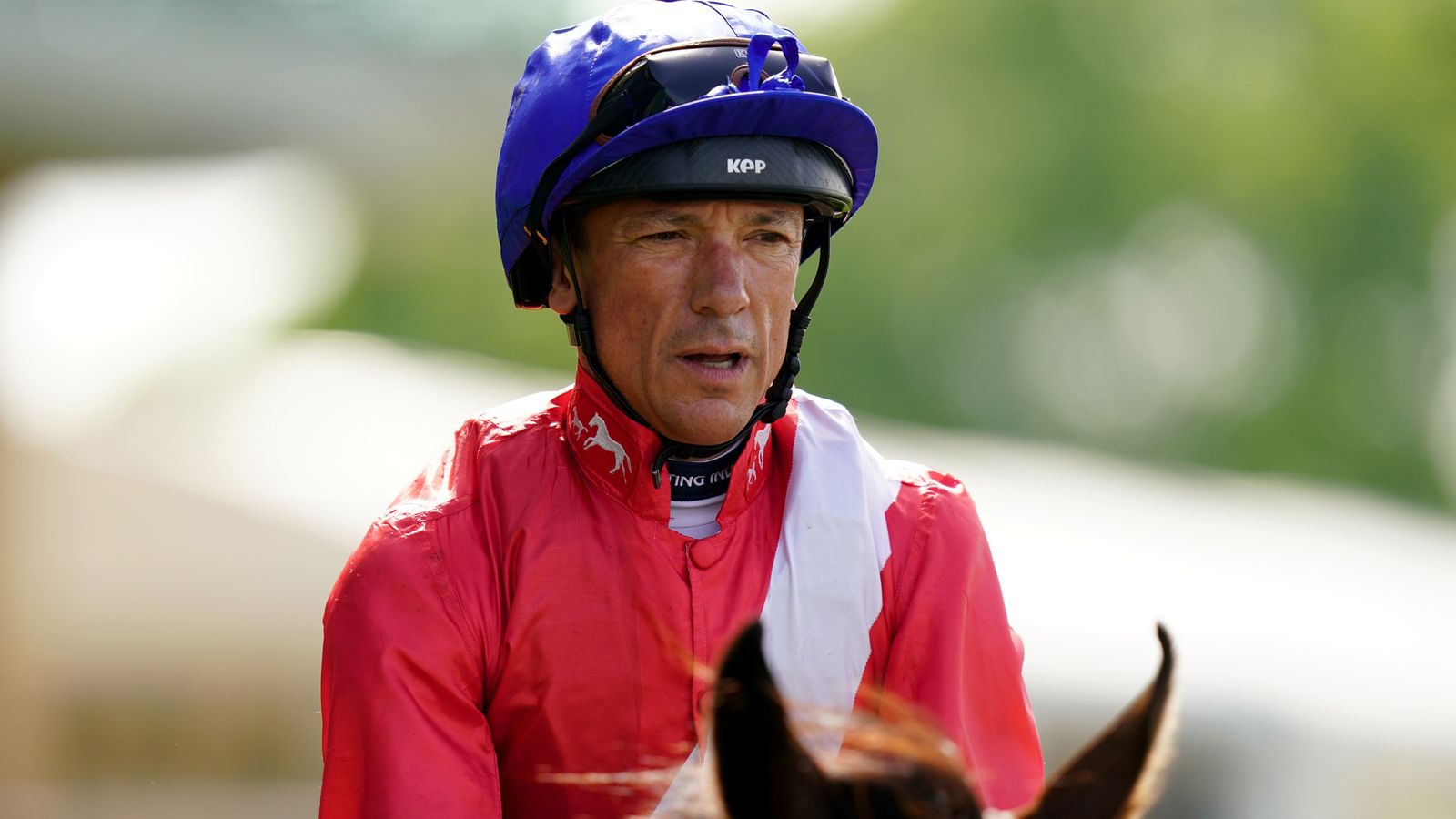Frankie Dettori, one of the most celebrated jockeys in the world, sparked intense debate after openly criticizing recent decisions by the British Horseracing Authority regarding social issues in the sport.

Dettori emphasized that horse racing should focus on passion, skill, and competition, rather than being influenced by politics or social campaigns. His comments immediately drew reactions from fans, media, and fellow professionals.
The controversy intensified when Dettori publicly questioned the BHA’s acceptance of LGBT riders and a recent Pride Night celebration on social media. Many interpreted his statements as a critique of mixing sport with political or social agendas.
Supporters praised Dettori for speaking his mind, seeing him as a champion willing to defend traditional values and the integrity of horse racing. They argued that racing should remain a merit-based sport.
Critics, however, accused him of being insensitive and outdated. They pointed out that inclusivity is important for modern sports, and celebrating diversity does not diminish athletic achievement or competitive integrity.
Dettori clarified that his stance was never about disrespecting individuals, but about maintaining the sport’s focus. He stressed that passion, discipline, and dedication should define horse racing, not political or social symbolism.
The jockey’s social media posts included examples of corruption and mismanagement in racing, suggesting that attention should be placed on cleaning up the sport rather than staging events unrelated to performance.
Fans were divided, with discussions quickly trending online. Some agreed that priorities in racing should center on fairness, training, and competition, while others felt Dettori’s comments ignored the importance of social awareness.
Industry insiders noted that horse racing has faced multiple challenges, including governance issues, financial pressures, and reputational risks. Dettori’s criticism highlighted the tension between tradition and evolving social expectations.
Journalists covered the story extensively, analyzing how one of racing’s most recognizable figures openly challenging the BHA could influence policy and public opinion. The debate reached beyond the racetrack.
Dettori’s remarks also sparked conversations among younger riders, trainers, and fans. Many reflected on whether sports figures should engage in social debates or focus solely on competition and skill development.
He argued that mismanagement and corruption remain urgent issues in the sport. Pride events, while socially significant, should not overshadow the work needed to ensure fairness, transparency, and safety for jockeys and horses alike.
Some commentators compared the situation to other sports, noting how leagues and federations worldwide increasingly mix social activism with sporting events, sometimes provoking strong reactions from athletes and traditionalists.
Dettori’s approach demonstrated his commitment to protecting the sport’s legacy and purity, emphasizing meritocracy, hard work, and respect for the competitive spirit that defines horse racing globally.

Reactions from the international racing community varied. Some welcomed a veteran’s honest critique, while others criticized him for not embracing inclusivity initiatives, highlighting the tension between tradition and modern values.
The jockey also reminded fans that his statements were intended to provoke thoughtful discussion, not hostility. He encouraged dialogue about how racing can evolve without losing its core essence and competitive integrity.
As debates continue, Dettori’s comments illustrate the challenges sports face in balancing tradition with social change, showing that high-profile athletes can influence conversations far beyond the racetrack.
While some viewed his statements as controversial, others agreed that addressing governance and ethical concerns should remain a priority for any sport, ensuring long-term sustainability and trust among fans.
In the end, Dettori’s position sparked important conversations, encouraging racing communities worldwide to reflect on how to harmonize inclusivity, transparency, and the pure sporting passion that has defined horse racing for centuries.
The incident demonstrates that even the most celebrated athletes can shape public discourse, proving that opinions from inside the sport often carry significant weight and can inspire debate on its future direction.